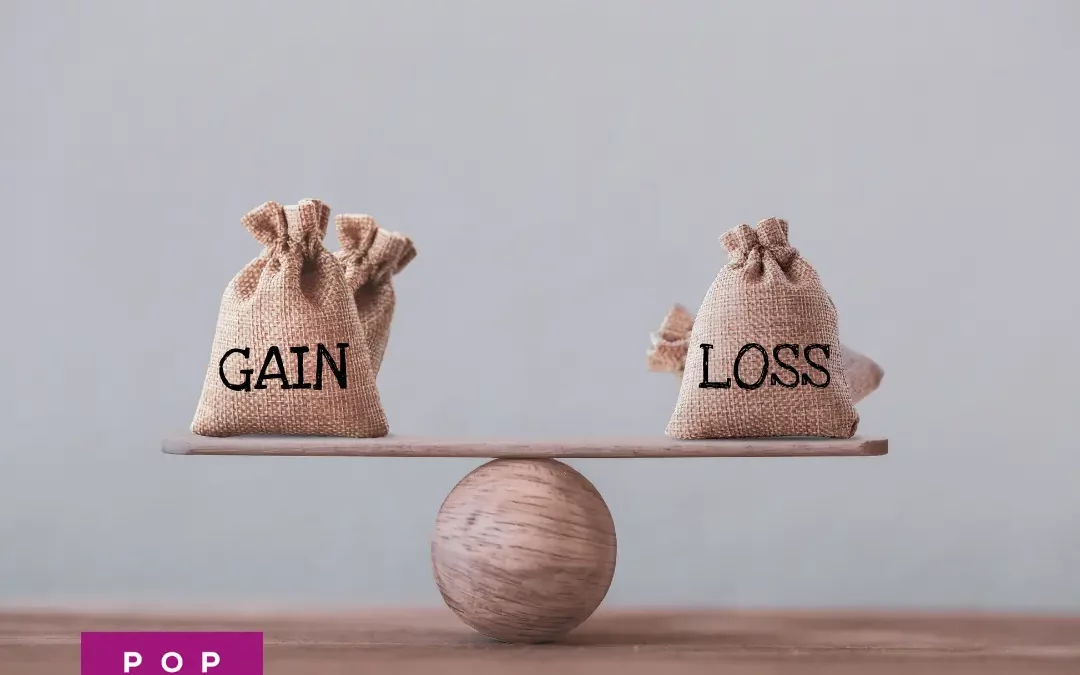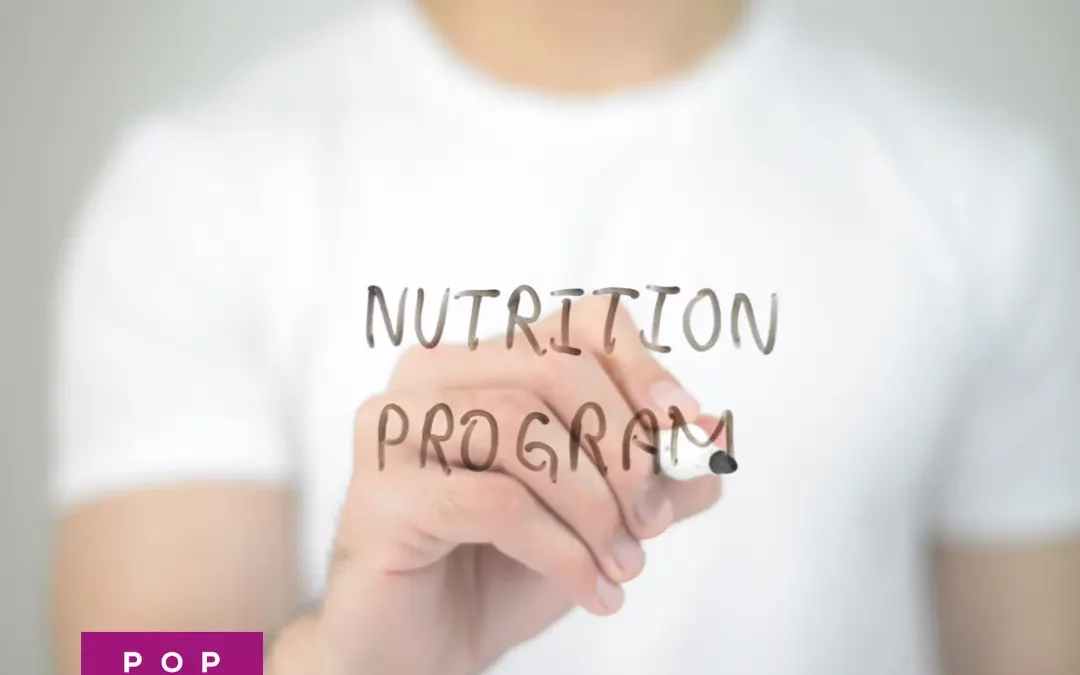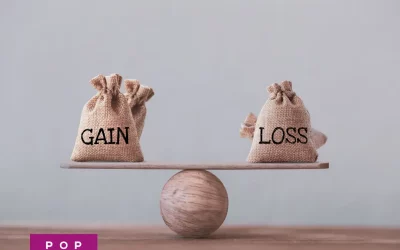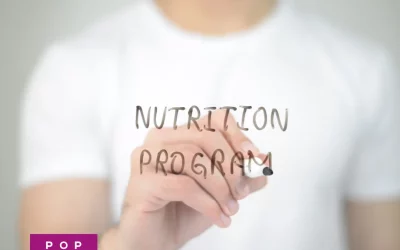I’m going to share the top 5 macro tracking mistakes that make losing fat more difficult.
First, though, I want to make sure we’re all on the same page.
Tracking macros is one single tool in the toolbox.
It’s not the end all be all of nutrition.
For those that are new to tracking macros …
It’s a more specific form of calorie counting.
All calories are made up of 3 macronutrients: protein, carbs, and fats.
The only other place that calories come from is alcohol.
So, tracking macros is where you figure out how many total calories you’re consuming and how those calories are dispersed between protein, carbs, and fats (and alcohol).
Protein and carbs each have 4 calories per gram. Fat has 9 calories per gram.
You don’t have to count calories …
But all calories count.
What I mean is … some people don’t pay attention to how much money they are spending or saving.
But just because you’re unaware, doesn’t mean the money isn’t being spent.
Similarly, many people have no idea how much they’re consuming.
But the calories still count whether you’ve got your head in the sand or not.
It’s my belief that everyone should spend at least 30 days learning to track macros, simply from an awareness standpoint.
Pros and cons of tracking macros
The benefits can be:
– Identifying eating patterns and tendencies
– Learning to read food labels
– Understanding portion sizes
– Learning how certain foods make you feel
– Identifying blind spots (like consuming too little protein)
– Awareness around how much you can actually consume without gaining weight
On the flip side, the negatives can be:
– Becoming too obsessed with tracking
– Perfectionism
– Becoming a hermit because it’s hard to track while being social
– Thinking that the numbers are the only thing that matter
– Ignoring food quality for the sake of hitting macros
– Ignoring your body for the sake of hitting numbers
– Becoming too dependent on MyFitnessPal (lack of balance / flexibility)
Tracking macros can be a trigger for individuals with disordered eating tendencies.
Which is why it’s important to understand that it’s simply one tool in the toolbox and does not need to be the path that everyone takes.
But it can be useful.
And as it stands today, it’s the most effective method for knowing how much you consume, on average, on a daily, weekly, monthly basis.
Remember … results happen based on what you do the majority of the time over a long period of time.
Which is why I believe at least 30 days of tracking can be beneficial for MOST people.
However, I often see some common macro tracking mistakes.
Here are my top 5 macro tracking mistakes
Let’s dive in … in no particular order …
1. Trying to hit targets before even knowing what you’re currently doing
There is an integral first step in this process …
You have to know your starting point.
If you don’t change a single thing, how much are you consuming? Be sure to include a weekend day in there too because that can look very different from the weekdays.
Before jumping in with macro targets, start with 3-7 days of simply tracking what you’re currently eating.
It’s important not to change anything or try to eat better than you normally would. This is to get an accurate depiction of what’s currently going on.
2. Taking leaps instead of baby steps
The best place to start … is close to where you’re at.
If you’re eating 50g of protein per day and your goal is to get that number to 150g …
It doesn’t make sense to take the leap from 50 to 150.
That will probably feel too difficult and unsustainable.
Go from 50 to 75. Then once 75g of protein feels easy, go from 75 to 100.
I see this frequently with people who come from a very low carb background and want to add carbs back.
Which is a good idea but it needs to be done gradually so your body has time to acclimate.
Start close to where you’re at and make small changes that are easy to execute.
3. Using exact numbers instead of ranges
Tracking macros can bring out the perfectionist tendencies in all of us. One way to combat that is to stop focusing on an exact number and instead use a range.
Trust me, the difference between 50g of fat and 53g of fat is not going to make any difference whatsoever.
A range of 10 grams works well for protein and carbs, and a range of 5 grams works well for fats.
4. Measuring instead of weighing
You’d be surprised at how much of a difference this actually makes.
In a one off situation … not a big deal. But done consistently with each meal … it can absolutely make a difference.
Just try it for yourself.
Go look at the back of a box of oats, for example.
You’ll see the serving size says 1/4 cup and 40g.
Place your bowl on the food scale, use your 1/4 cup measurement and then weigh it.
I can almost guarantee it won’t say 40g.
The serving size weight will always be more accurate than the serving size measurement.
I actually find that it’s quicker and more convenient to weigh anyway and the icing on the cake is that it’s way more accurate.
I’ve seen some measurements that are literally double what the serving size weight says. Meaning you could eat twice the amount of calories than you thought.
5. Using a generic calculator instead of a coach
Way too many people plug their info into MyFitnessPal and then get started with the magic 1200 calorie number.
Which is depressingly low for 99% of the population.
There are even coaching programs out there that claim to be “personalized” and the reality is … they simply put your age, weight, height, sex, and activity level in a calculator and spit out a number at you.
That is far from personalized.
Effectively what they’re saying is … every person who is the same height and weight should eat the same.
Makes no sense.
There are other important considerations like diet history, personal preferences, metabolic status, personality, stress levels … just to name a few.
Too many people try to cut corners by using cheap programs or generic calculators to see progress.
It’ll likely only add time, wasted energy, and frustration to the process.
A quality coach will understand the art and science of a macro prescription AND can help you with necessary adjustments, which is arguably even more important than your initial prescription.
I’m going to add a bonus one here …
6. Selective tracking
This is where you only track what you want to track.
You picked some leftovers off your kid’s plate … better not track it.
You shared some appetizers at dinner with friends … better not track it.
You over indulged and went HAM on all the snacks in the cabinet … better not track it.
Imagine how great it would be if the calories not logged didn’t actually count. Unfortunately, that dream world doesn’t exist.
If nothing else, you should track those situations at least once.
The restaurant meal, the over indulgence, the snacks, etc.
Just one time, track it all.
Here’s why …
1 of 2 things will happen …
1. You’ll realize it wasn’t as bad as you thought and you’ll stop beating yourself up or
2. You’ll realize it was much worse than you thought and you’ll think twice about those decisions next time.
Awareness is always a good idea.
Anyway, which of these macro tracking mistakes resonate the most with you?
What is your biggest struggle with tracking macros?






